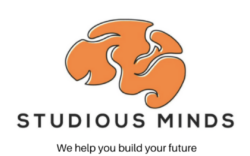Junior college is no walk in the park. In fact, many students in Singapore would agree that those two years are among the most gruelling periods of their lives—even after they’ve had a taste of adulting. The academic bell curve shows no hint of mercy, and the content workload is unforgiving, striking with full force. The competitive environment, only slightly eased by the presence of supportive friends going through the same experience, keeps you on edge every day, whether school is in session or not.
Building a strong foundation in preparation for the final act goes without saying. With enough effort, a healthy mindset, as well as the right strategies, you could probably even make the two years easier than you think it’d be.
Studious Minds boils down all you need to know for A-Level success into eight practical tips. Hit the ground running with us!
1. Do Your Due Diligence (And More)
Going to school and actively engaging in class is the bare minimum for making your time in JC meaningful and productive. Besides being physically present, you should be completely lasered in and asking questions when any doubts arise. It’s common to hold back questions for fear of appearing ignorant or uninformed—but don’t let that stop you, everyone is here to learn.
That said, learning does not only take place within the walls of the classroom. Even if you’re sure you’ve grasped the core concepts in class, studying at home will help to reinforce your understanding and retention. Unfortunately, due to teachers managing large class sizes, it also may not always be possible for them to answer each and every question. In such cases, having a tutor by your side can be helpful.
2. Start Early and Never Stop
Whether it’s procrastination, forgetfulness, or bad time management, cramming is a fatal flaw of countless students. While last-minute revision in theory may help some students, there are valid reasons behind the proverbial wisdom warning against it, such as reduced sleep and lack of long-term retention, which ultimately lead to poor academic performance.
The earlier you start your revision, the stronger your knowledge will be, and the more mentally prepared you will feel. Remember, it’s never a bad thing that your exams are months away—but wasting that precious time and regretting it at the eleventh hour is.
3. Don’t Just Memorise
Do you find yourself repeatedly saying information out loud in an attempt to memorise it? This is called rote learning, and it’s a common technique that’s based on the assumption that one’s ability to recall comes faster through repetition.
Rote learning is great because for the most part, it works. But it can also be incredibly time-consuming and short-term. Before embarking on rote learning, make sure you first understand the concepts—that is, grasp the underlying principles so that the information is clear and organised in your head. This can occur through trying your hand at solving problems and applying the concepts in different scenarios. That’s why lessons and practice papers work.
4. Embrace a Growth Mindset
The way you think about learning and intelligence has an enormous, but often unspoken impact on your academic performance. If you have a growth mindset, you see intelligence and skills as things you can develop with effort. On the other hand, a fixed mindset makes you believe your abilities are set in stone, which can be incredibly damaging for your success.
You don’t have to be a natural born genius to ace your A-Levels. Rather, the bulk of it comes down to putting in consistent effort to improve and adapt. Having a growth mindset helps you stay motivated and push through obstacles, instead of getting consumed by self-doubt and being entrenched in a defeatist attitude.
5. Practice, Practice and Lots of Practice
You can learn a lot in theory, but real understanding comes from practice. It’s one thing to know a concept—it’s another to apply it effectively. Practising not only strengthens your foundation but also helps you get familiar with the exam format, so you’re not caught off guard on the big day.
It’s a good strategy to start with simpler questions or practice papers before taking on those of higher difficulty. Being able to handle the tougher ones is a true sign that you’ve mastered the topic! Beyond just improving your subject knowledge, regular practice boosts your confidence and sharpens your problem-solving speed. The more exposure you get, the more prepared you’ll feel when it really counts—so never think practice papers and mock exams are a waste of time.
6. Set SMART Goals
One common misconception about goal setting is that people focus too much on the outcome they want, rather than the process needed to achieve it. This becomes even more challenging when expectations are set too high, leading to an underestimation of the effort required.
How can you avoid this? For a long time, successful go-getters—often proactive goal-setters themselves—have been using the SMART goal framework to guide their action plans. An acronym, each letter stands for:
- Specific. Ensure your stated goal is clear and concrete.
- Measurable. Your goal needs to be trackable, in order for you to know when you’ve achieved it.
- Achievable. A challenging, but realistic goal that you can take control of while pushing yourself.
- Relevant. Where does your goal fit into the bigger picture? The short-term impact of academic results has resounding effects on future opportunities.
- Timely. Set up a timeline with attainable milestones. This will keep you focused and track your progress.
SMART goals can help students stay disciplined and advance their studies in a steady, progressive manner.
7. Create an Effective Study Plan
Think of a study plan as your semester or year-long schedule. Developing an effective study plan requires honesty and thoroughness. For most students, creating a master plan of how they envision the semester will unfold isn’t the problem—following through is.
In addition to outlining the topics to cover and setting deadlines for completion, be sure to consider other factors that may emerge along the way. Along with cocurricular activities and other responsibilities, remember that not all subjects require the same amount of time. It’s better to maintain a consistent pace than to rush through at the last minute. We recommend studying as soon after class as possible, and even the odd hours between classes can be useful for light review or catching up.
Moreover, your study plan should take your individual learning style into account. If you tend to be more productive in the late afternoon, allocate your most challenging subjects during that time. A manageable and realistic study plan helps reduce stress before exam periods.
8. Bonus: Seek Support When Necessary

Your A-Level success largely rests in your hands. However, you don’t have to face this alone; with supportive classmates and encouraging teachers, you can benefit from shared notes, clear explanations and constructive feedback. Sometimes, even something as simple as a few motivational words can make a big difference.
Tuition provides the same peer support and professional guidance, but with a higher level of attention and depth compared to traditional schooling. Together with a conducive learning environment, Studious Minds offers JC students specialised tuition programmes to make even the most complex and comprehensive topics easily accessible. Conducted in small groups, and furnished with exclusive, quality study materials, establish a strong foothold for the A-Levels with top tutors Mr Alex Toh and Ms Jes Peh today.
Join the ranks of the 70% of students at Studious Minds, who achieve distinction in their exams. Contact us to find out more!


